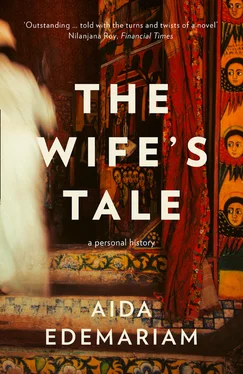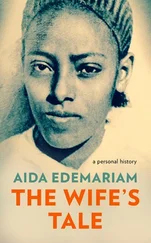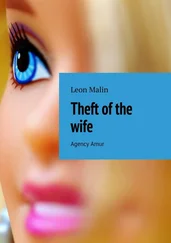‘Nigisté,’ said her mother. ‘My queen.’
A scatter of hooves, footsteps, a tumble of voices, and then one of the groomsmen, a relative of theirs, bowing in through the door, bowing to the women. How did you spend the night? Well, the women answered, thanks be to God, and you? Well, well, may His name be praised, may He be thanked for bringing us this day, may His honour and glory increase, and she was lifted up, up through a welter of hugs and kisses, prayers and instruction, into the brightness outside.
The elders were waiting. Past the women, first. Past her smiling grandmother, her aunt. Then the men. May you be given a long life. May He watch over you and keep you, rain blessings down upon you. Her father kissed her. May He go with you, child, all the days of your life.
Gently the groomsman placed her on a waiting mule. Then, because she was too young to control it, he mounted too, and, passing an arm around her waist, grasped the reins. Firmly he pulled the animal’s head round; slowly they moved out of the compound, and left her family behind.
At first she concentrated on their mount, on the animal’s rough narrow back, the part in its mane a dark bolt of lightning. The balls of red wool sewn to bit and bridle that shook at every step. The embroidered saddlecloth. The side of its face, unfeasibly long lashes blinking away flies. The uneven rocking as it searched a path through the stony streets.
After a while she became aware of the running children, the women on errands, the yodelling calls of door-to-door salesmen, the compounds whose walls reflected the sound of their mule’s hooves back to them. And the other hooves, too, clopping out a ragged counterpoint. She knew what they carried: narrow embroidered dresses she could wear now; big square dresses, for when she was older; a length of perfectly white, perfectly even cotton; delicate shemmas; thicker shawls edged with wide red bands; fine basketwork woven by cousins over the long rainy season; twelve grey-tinged salt amolés in lieu of silver; gans of dark beer; a case of cured goat hide, just the right shape for a psalter. The slave girl, Wulé, walked alongside them. Another groomsman. And him.
They were led not to the wide das, where, under a temporary roof of saplings and branches, the wedding guests had already gathered, but to the bridal hut nearby. She felt him sit, felt the groomsmen take their places, took her own.
Ilililililililil! Ilililililililil! She recognised none of the women, but the sound was the same.
The noise from the das rose and rose. Rushes of music, a drum – there was no illness in this part of town. Every so often men came to the door, carrying fluttering chickens as offerings to be made into stew for the bridal party; women with fistfuls of pancake and butter, rich food they held direct to her mouth. But she was not hungry. And she still could not trust that she would not wet her bed at night. So she shook her head and refused it all.
The second day. In the das a minstrel sawed at his jasmine-wood masinqo and tossed rhymes like spears into the crowd. Guffaws of recognition only underscored her distance from home. She heard clapping, ililta. They were dancing! Tears dropped onto her hands. The groomsman who had come to fetch her from her family noticed. He caught her small feet in his hands and drew a finger over her anklets. Who bought you these? Do you know how to clean silver? She shook her head.
The third day. Her mouth stuck shut with thirst but she took only the tiniest sips of water, to loosen it. In the das they danced and sang and clapped and cheered but in the little hut, where if she had been old enough the marriage would have been consummated, no one spoke. Then, ‘Listen. Have you heard the story of the hawk and the tortoise?’ No. ‘Shall I tell you?’ A slight nod. For the rest of the day the groomsman dredged his memory: The monkey king. The tortoise and the hare.
The fourth day. ‘A cat and a mouse were getting married. On the day of the wedding the cat’s groomsmen gathered and together they made for the bride’s house, dancing and singing in anticipation of a feast. The mouse, like all brides, waited amongst her kinsfolk to be taken away to her new life. Then one of the other mice piped up – “You know, cats can’t be trusted. Let’s dig holes in the ground, just in case.” So they set to it, scrabbling out deep tunnels with hidden entrances. Finally the cats came into view, chanting “Ho – pick one up here, ho, pick one up there, ho.” When the mice saw them approaching they turned as one and plopped into their holes. And the cats, who thought they’d been so clever, didn’t catch a single mouse.’ His laugh wilted into the silence.
The fifth day. ‘Aleqa Gebrè-hanna, the famous wit – he was also leader of the church in which you were just married, did you know that? – was walking along the road when he met a donkey-driver. He greeted the peasant with unusual politeness for someone of his high status, even bowing low. In the mead-house later that evening the donkey-driver regaled his friends with his tale of a grand personage who had deigned to speak to him so kindly. But his friends were sharper than he was, and asked for the scholar’s precise words. “How are ye?” he repeated, realising, as he did so, that he had been included with his donkeys.’
She laughed. Her head tipped back, her veil slipped off, and for the first time she saw properly the man who had sat there all along. Pure white jodhpurs, wound tight around his calves. A wide sash around his waist. A cape of thick black wool falling from thin shoulders in generous folds. And under the white turban a small dark face and a tiny, straight nose. Awiy! she said in a low voice to the groomsman next to her. When I have children they’re going to look like that! He laughed, but she was serious. She dragged the material back over her face.
When, after nearly two weeks, the feasting was finally over, the little party left the bridal hut and walked into the das. It smelled of incense, of food and stale beer. The reeds and wildflowers that had been strewn across the ground were bruised and limp. Even under her netela she felt the expectant eyes; when it was lifted away so the guests could see her it was like a blinding.
AND HE TOOK THE MAIDEN TO HIMSELF, AND HE SAID UNTO HER, ‘BEHOLD, O MARY, I HAVE TAKEN THEE FROM THE HOUSE OF THE SANCTUARY OF GOD, BUT I WISH TO GO ON A JOURNEY. TAKE CARE OF THYSELF UNTIL I RETURN TO THEE, AND I WILL ASK THE LORD GOD TO PROTECT THEE AND BE WITH THEE.’
– LEGENDS
The tree was a green cave, full of shifting underwater light. And so quiet. She drew bare soles along the rough branch and resettled her spine against the trunk. In a minute she would climb down, hugging a bounty of peaches in the lap of her dress. But in a minute. First she wanted just to sit here, in the bird-sewn silence.
When, inevitably, she heard her name called, she didn’t answer. Maybe if she was really still – but the calls came closer, till they were beneath her feet. ‘Come down. Please come down?’ A pause. ‘You’re the wife of a big man now. You must come down.’
But he’s away , she replied fiercely, though only to herself. And I wish he’d never come back.
‘That’s right, careful.’ She shrugged away the proffered hand, and made for the house.
They were preparing for a visit from her father. Her aunt, Tirunesh, presided. Woizero Tirunesh, in her layers of white shawls, sitting stately, giving orders. Woizero Tirunesh, with her ever-present horn of dark beer, stirring up yet another domestic storm.
She was ambivalent about her father, Tirunesh’s younger brother. Mekonnen Yilma was proud, tall, a fast walker, a fast talker, a natural soldier. A good storyteller, too, and committed to witty conversation. Listening to the thrust and flash of his talk, his quick laughter and tight puns, or watching him settle himself onto a stool, take a sip of mead, then lean into his high ten-string lyre to sing slow low Lenten songs, she could almost forget she was afraid of him; almost forget the terror with which she watched him punish the other children, the spell of the thin hide whip curving through the air and kissing the backs of their legs.
Читать дальше












